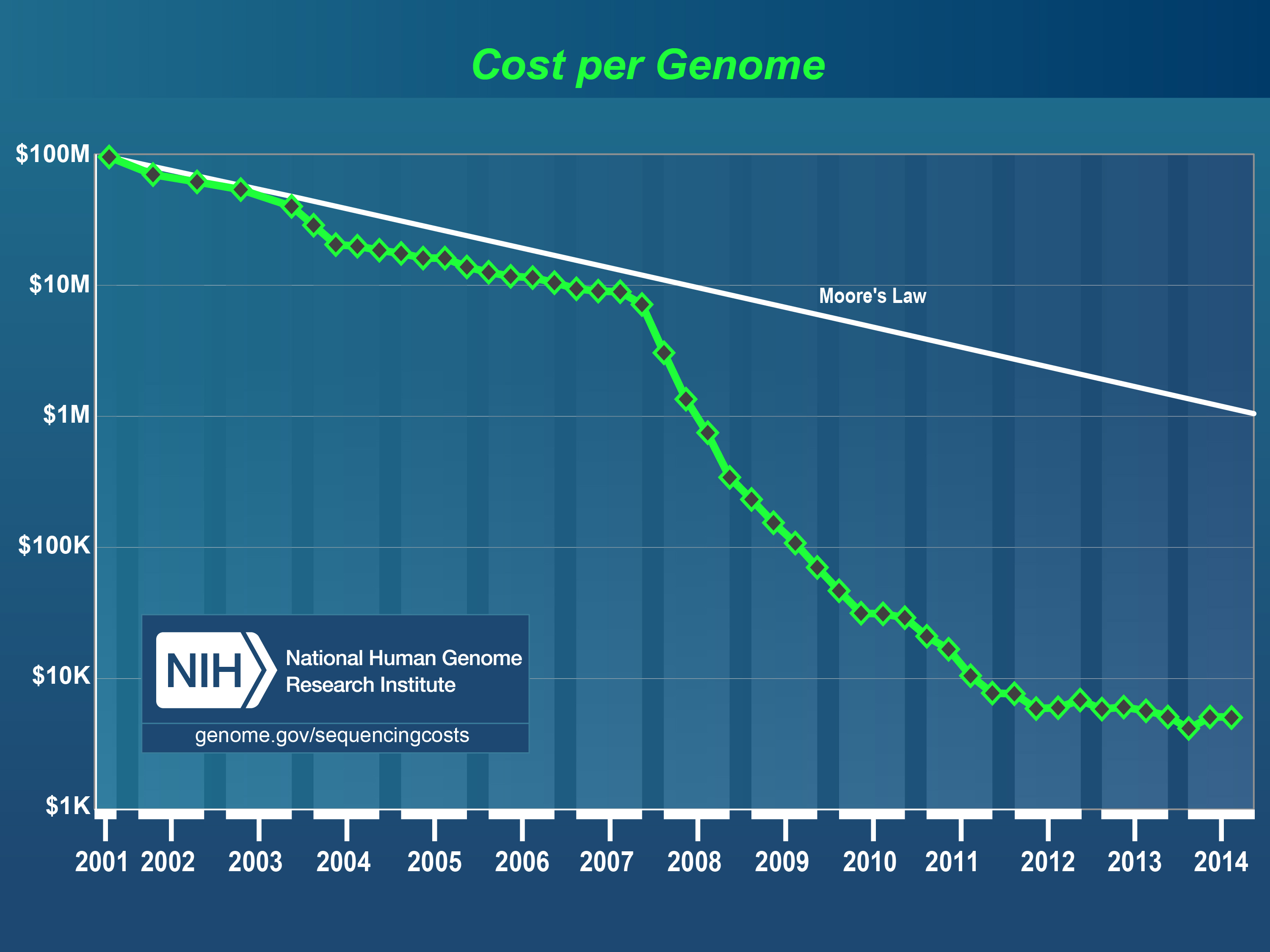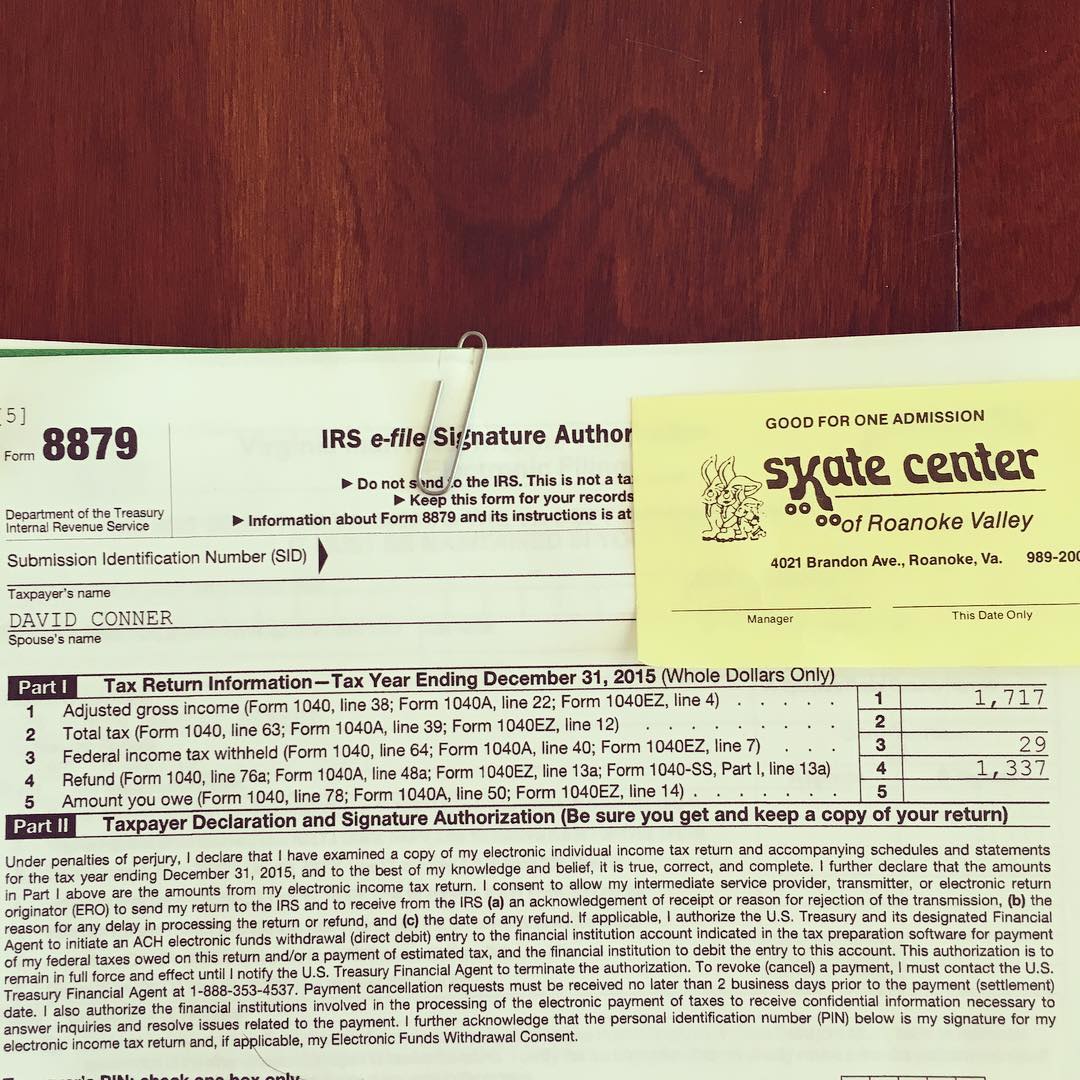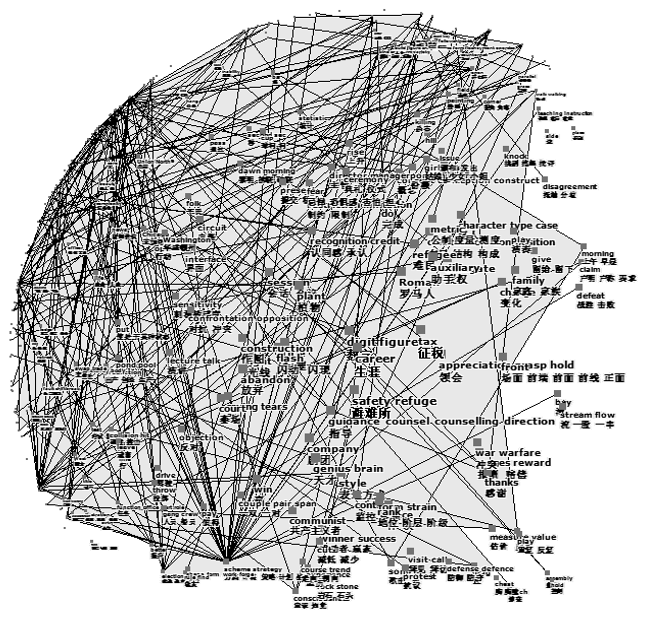Allcats? Yes, allcats. Additional generic non-sequitor. Hilarity ensues.
Knowledge and information are woven onto a universal loom, transcending time and space. Knowledge travels faster than light, without traveling at all. What is the foundation of the structure of this metaphysical space, this universal loom that enables us to weave higher order concepts into language and ideas. Does this foundation form the basis for a kind of universal language? Is there some most universal language which every sufficiently advanced culture is fated to develop? Can such a language be used to transcend the temporal limitations imposed by space?
What if there were some triple of communication protocol, symbols and semantics based on something so universal that it transcended space & time?
That is, each sufficiently advanced civilization (SAV) would invariably produce the same communication forms and protocols. If this is possible and if the conditions of transcending Fermi’s Paradox promote or require its development, then each culture in the galaxy or universe capable of serious interstellar participation would develop this. At least, until that culture developed technology which transcended the limits of the speed of light. There may be a period of 10,000 to millions of years before a civilization truly transcends space and it may not work out to be as convenient as warp drive. The means of surpassing the speed of light and imposition of the vastness of space may be incredibly expensive in terms of energy, which begets galactic ethics issues. Who’s energy is that to harvest anyway?
Since the timescale of communication relay is so large — upwards of 200,000 years, round trip to ping the farthest reaches of the Milky Way from Earth! — something of a universal language may be incredibly important. What would the basis of such a language be? Math! The language would be based on mathematic, algebraic & combinatorial primitives from category theory, algebraic geometry, etc., combined in some “universal” way to produce grammar and encoded semantics.
Furthermore, the exact time in which a species in the galaxy is obtaining tech for outer space exploration is the same timeframe in which a species will develop the tools for inner space exploration (i.e. computers, cyberspace). So I’d like to show that it is at least a reasonable hypothesis that this combination of factors may converge to produce the phenomena of a universal language. The technological need, the economic incentives and the comprehension of interstellar benefits should converge at approximately the same time in the development of a civilization breaking through the shell of their planet.
What Language Would Aliens Speak?
Here I’m referring to two different things: a global universal language and a language of the universe. I’ve thought about the benefits and drawbacks of engineering a global language before and such a concept is fairly straightforward to explain. However, a singular “language of the universe” is new to me. I’ve never heard anyone talk about a concept like this, although I’m certain that someone could find a dozen sci-fi novels that mention something like this.
If you don’t know much about language or linguistics, there are a few concepts you should know. Semantics essentially refers to meaning. What does a word or sign mean? Also, there are various word orders. Subject-Object-Verb (SOV) or Subject-Verb-Object (SVO) are examples. That’s really all you need to know for the scope of this article, though more is better. I’m definitely not an expert.
What I’m conceiving is both the possibility of and the inevitable necessity for a language that is used across the universe. It would be something that is independently discovered by almost every civilization, whereby transmitting the knowledge to use the language is not necessary. That the meta-information about semantics, grammar, morphemes, phonemes, etc. can be abstracted is not new I’m not really talking about a communication protocol for conveying semantics (meaning) and data simultaneously. It is fairly trivial to map from one language to another and to encode the means for doing so along with the content is not too complicated.
That’s not new. We did that with data we sent out on Voyager, Carl Sagan’s cosmic frisbee … because before it ventures too far outside the Oort Cloud, we’ll probably fetch it, get it?
What’s my reasoning behind this idea of universal language? First, I’ll briefly cover the benefits. And then I’ll explain how it could be possible. It definitely is possible, though what would qualify is debatable. First off, math is a universal language. So that, in itself, qualifies, though math itself isn’t really what I’m talking about. Neither is a communication protocol for simultaneous transmission of semantics and content.
What I want to show is that it may be possible for something between those two concepts to exist. That is, there may be a universal language, independently discoverable by any SAV that is more apt for conveying meaning than math but doesn’t require a communication protocol to be established ad-hoc or ahead-of-time.
From Genomic Sequencing to a Universal Language
At the moment, I’m working on a genetic sequencing algorithm. I had hoped to discover something much faster, since that would enable so much data science on the subject. Yet after reviewing the code for existing algorithms like Barracuda, SPAdes & CUSHAW, it seems like there’s no way to accelerate sequencing algorithms beyond what’s available. I mean, W.B. Langdon & Brian Yee Hong Lam published a study in 2015 that used genetic programming and machine learning to achieve a 10x increase in performance in the Barracuda GPU algorithm. That’s such an obscenely radical technique.
“Use genetic programming to optimize the AST for your GPU driven data science application under various conditions.”
There’s no faster way to make a Computer Science PhD student cream his pants than the quote above. If that’s the technique that people are resorting to in recent research, I highly doubt that there’s much else out there.
Look at how fast that line dropped!

What if it weren’t just cheap and fast to sequence human genome data, but to datamine it as well. Multiple sequence alignment would be trivially fast. Evolutional divergence of exons between species? Easy. Between specimans or patients in an experiment? Easy. Account for deviations in lab data resulting from individual mutations in lab specimans? Easy. Datamining for truly personalized medicine? Easy. Correlating minor patient variations in key genes to patient treatment outcomes? All easy. If and only if there is a better algorithm for sequence alignment.
An Engineered Global Language
However, working on this is got me thinking about an idea I had several years ago (around 2012) for a global language. The connection is that the complexity of many bitcrunching algorithms is dramatically reduced with a smaller character set. A universal language is an idea Google would probably love, but one that would take decades of cultural change and social engineering to implement.
Here’s where they call me crazy, if they don’t understand. If they do comprehend, then they’ll say it’s impossible or not practical. I don’t care whether we think it is possible or not. It will happen, absent systemic collapse, because of undeniable factors driving civilization toward it. Like so many aspects of technology, it is inevitable.
Why would Google love a universal language? Facebook? Twitter? Practically every software business ever? (Keep in mind that these are the benefits. There are drawbacks as well)
(1) Dramatically reduced cost/time/complexity to index data to provide search.
Every useful app out there indexes their customer’s data to provide search functionality. For the biggest apps – again, think Facebook, Google, Twitter – this presents wonderfully challenging engineering challenges, usually solved via distributed design and stream processing ala Storm or Kafka.
This can be incredibly challenging. And many key insights in data are not shared across language barriers, as the software to process such insights is expensive to develop/deploy. Machine learning to correlate semantics across languages is still fairly new. But, given a universal language, that additional step isn’t really necessary.
(2) Reduced complexity in business processes; decreased support costs
Dealing with multiple languages (though not very hard) can be expensive. Any time you significantly update your business processes, repackage a new product offering, build a new marketing campaign or want to tap into a far-off market, you need to translate. Reduced translation cost isn’t a critical piece of my argument. English already functions as a kind of universal language. There are reasons for that, including the simple latin alphabet.
(3) Instantaneous global market reach
Launch a new product? VR/AR? Web Service? Instant 100% global market penetration, given a few key assumptions of course. Do you like money? No? OK, that’s fair, your probably voting for …. ok, nevermind. Not really funny, I know. Anyways, I’m guessing that you know someone who likes money a lot. I don’t really, other than it’s a means to an end for bringing change to the world.
Anyways, that guy that really likes money and built a product just to get lots of it? That guy is reeeaaaalllly going to like 100% market penetration. He’s also going to like that no matter where in the world a user joins, that user can interact with 100% of the other users on that product. Do you understand the added value to a network that this brings? That guy that likes market penetration does. When 100% of nodes on a social network could interact meaningfully with 100% of other nodes, that maximizes potential for interconnection. However, sometimes it’s useful from an analytics perspective to have segments & pockets of more & less isolated nodes.
Here’s the kicker
(4) Dramatically reduced energy consumption
Energy consumption is the critically undeniable factor that will drive this change.
Software doesn’t really use a huge amount of energy, in comparison with agriculture, transportation or home conveniences. But it will be important enough, along with other factors, to ensure that the development of a universal language is inevitable. As more devices are added to the internet of things and as technology begins to pervade everything, then the software to manage the ever-increasing graph of nodes will need to become more complex as well.
Moar energies!
If every software problem is made needlessly more complex by the introduction of language, forcing some text-related operations to consume between 10 and 100 times the energy they should, don’t you think that’s an important reason to implement a change in the way people communicate? I’m not saying that people will completely cease using their native languages, nor should they. Drawbacks to total implementation are explained shortly.
Barring the development of a Dyson Sphere absorbing nearly all of the radiation from the sun or at least a globally deployed solar energy apparatus, then we’re fucked. We’re going to need every last drop of energy we can get. Every form of energy production (transduction) causes changes in the environment. Every single one: solar (yes), wind (yes it does), biofuel (why not skip the middle man?). Even fusion. Especially fusion. Hydrogen is a limited resource.
Quick idea: Look for alien life by trying to find aberrations in element abundance from fusion. Especially hydrogen/helium ratios. It’s probably not novel though.
The Tower of Babel Crumbles

There are many drawbacks to be considered as well. But, like I said, this is something that is probably inevitable, though it may be a century before we see it completely overtake the world.
The main drawback that I see is reduced diversity. It’s a good thing that there are so many languages and so much diversity in the world. Diversity in language, customs, beliefs, subcultures, sexuality, etc. It’s all great because it allows us to explore life and ideas in different ways. None of us can assume that we have the right answer to how to live life. If we remove the diversity, we remove our ability to explore life in search of a better answer.
Implementation of a universal language would require worldwide cooperation and global policy changes implemented gradually, with some areas leading and others trailing. Just like any other global policy. And in the pursuit of pushing a universal language on the world – along with many other globalization initiatives – there develops this kind of inferred ideological superiority. Southpark would probably call this “smug” and it’s a sense that one is better than another because they’ve chosen to be ahead of the curve. It stinks, it’s arrogant, and it’s corrosive.
Again, none of us can assume that we have the right answer for how to life life…
Another drawback concerns the implementation costs, especially if we don’t get it right. Many times, in the real world –
Aside: I live in my mom’s basement. What do I know about the real world and having a life? My only experience with the real world has been a horrible Maslovian joke played on a poor bloke with Aspergers, AFAIK. Ironically, such crippling isolation has fueled the exact conditions which promote development revolutionary world-changing ideas. Take that, powers-that-be. LuLz.
– Clearly, I have digressed … Ahem.
Many times, in the real world, you want to simply get from point A to point B, but there is no simple path in between the two. And when implementing a global shift to an engineered language, could there be such a path? At least, there will be the all but certain developments of dialects that diverge, along with a lot of resistance to the idea. Eughh, Newspeak … that was the sound of me discovering exactly how how Orwellian this entire article sounds.
And alas, the tower of babel crumbles always. The very existance of a singular form of communication begets the conditions which create opportunity for competition. That is, people naturally want to form localized dialects and develop idioms. They want to develop their own colorful means of expressing themselves, revelating their emotions and recounting their surroundings. A singular form of communication means that anyone within earshot could immediately understand.
And what about when you discover that, by the time you’ve globally implemented your language, the design was flawed from the outset. Or that a newer design is better. Eeuughhh, Newspeak v3.7. That sounds even worse. My point is, how would we know what the best design of such a language would be?
Is there such a maximally “best” language? What if there was? What if it was universally discoverable? That every SAV would arrive to the exact same place.

In time. All in due time.
No, Seriously, It’s Because E=MC^2
The speed of light is a serious buzz kill. What do you mean we were born too late in an ever-expanding universe to ever explore multiple galaxies? Quite a common fate, actually, considering there’s a lower incidence of cataclysmic cosmic collisions in a universe which has had a bit of time to expand. But that’s beside the point. If there were a universal language, there’d be no need for the extra round trip(s) it’d take to establish a communication protocol.
15 Minutes to Mars, Folks
The speed of light also implies that we aren’t able to easily communicate with other beings. It takes 15 minutes to talk to Mars! To Mars!! Ok, sometimes 5, but more often than not, it’s more than 10 minutes – both ways!! There’s no high-speed bandwidth to Mars. Ever connect to satellite internet? How was that? OK, now add 15 minute ping time.
Oh, Elon didn’t tell you? Elon Musk is clownin on all you hopeful astronauts. I hate to break it to you. There’s no lolcat videos on Mars! Suckers. You’ll have to settle with dust tornadoes and waiting for occasional Olympus eruption. It only erupts every decade. I promise. JK, all respect to Elon. He’s the man.
Yeh, how you likin’ relativity now? So, barring instantaneous communication methods – ala the Ansible from Ender’s Game (it’s real, folks, I promise) – which bring along their own communication impediments, then we’re S.O.L. In other words, there’s a business opportunity for broadband on Mars. But for now, relativity rules. If you want to play phone tag with aliens, then maybe your grandkids will hear back. Is that a bad joke? I still haven’t seen Interstellar. I heard it was good. I want to see it. Thing is, I made less than $3000 last year. Here’s my tax return, pretty $1337, right?

But anyways, remember the Ansible, from Ender’s Game? I promised, didn’t I?
Heady Crystals!!
There should be some [very difficult] way of separating pairs of entangled particles, so that they never degrade. Once you’ve got your particles, your going to want to break them up and put them in crystals. Got it? Good. Now develop a communication protocol that enables you to affect the state of one particle, while simultaneously reading it on the other end. Now keep one crystal and send the other on a voyage through the galaxy you should have a low-bandwidth means of communicating at beyond the speed of light.
Here’s the tricky part: your mechanism can’t read the state of a particle without affecting it – and the state of it’s particle. Kind of a Catch-22. Maybe. However, with a clever design and the right protocol, something like this should be possible. But probably low bandwidth. Still no lolcats on Mars, folks. It’s a tragedy.
Imagine, if you would: an interstellar world, where we explore the cosmos for thousands of years, scouring the stars for life. And we find it! But, the aliens can’t watch our latest lolcat videos. OMGWTF?!
Maybe this isn’t possible, I don’t know. Last time, I checked, it seemed like it might be theoretically impossible, but mostly an engineering challenge. First, how do you construct such a mechanism to predictably interface with entangled quantum state. Do you manipulate entangled ions embedded in doped crystals? Using lasers I’m sure. If it’s cool, it’s got a laser. Or maybe you design a kind of Möbius crystal which entraps photons on neverending dualistic path, with a hint of Gömböc. Kind of like an infinity scarf, but cooler. Because it’s a fucking Möbius crystal. I just made that shit up. Just now.
Second, how do you read the state without destroying the data transmitted from the other end. I imagine these challenges could be overcome. Proper timing is the key! One can assume at each cycle that a particle would either be changed or not changed at each cycle. So, assuming that each entangled pair is only to be used for one-way communication, either from A -> B or from B -> A, then you should be able to alternate between particle states that signify a one or a zero. Basically, you’re reading not the quantum state, but a quantum state change.
Cyclically Entangled Particles

Furthermore, with a bit more imagination, there may be another way to do this, which would require cyclically entangled particles. I know, I know. “It’s not theoretically possible.” Neither was the cyclic shape of glucose molecules a few centuries ago. But with cyclically entangled particles, it’d be a bit easier to read state without overwriting. Just imagining how to imbue cyclic entanglement on particles is tough. I wonder if there are more complicated quantum entanglement mappings. If so, how would each be useful?
And third, how does one protect against degradation of the entangled particles. It’d be a real bummer if you sent one of these heady crystals 100 lightyears away and it ran out of juice like an overused lithium battery. And that brings me to the galactic economics of Ansible crystals … just kidding. What about the economics of earth-technology with faster-than-light (FTL) communication? How does software change, if this is possible?
Have you ever heard anyone ask about how FTL and it’s practical implementations changes the economics of software and hardware? I haven’t.
Language, I was writing about language. Not half-brained physics and hypothetical economics. Gee, imagine if I had the chance to actually study this stuff. Then, I could be creative and correct. But nope. I guess I’ve been disconnected, folks. They pulled the fucking plug on this guy. Womp womp. No plug for me.
Oh, one more quick idea. What if it was possible to use pre-existing entanglement for faster-than-light communication? In say, stars which collided with the same cloud of ionized gas for example. It’s probably not possible, but who knows. Interesting to think about. Or ooo what if entanglement is really caused by micro-wormholes and space is just an illusion obscuring a manifold where all points are equidistant. Probably not, but now I’m just making shit up.

“Silence When Gleep Glop Doth Speakth!!” …
Thus Spoke Gleep Glop
So, I’ve established or it should be easy to see that:
(1) A Global Language is necessary and beneficial for efficient algorithms & energy consumption.
Energy consumption will be critical to any civilizations who find themselves on a planet that they can escape – some civilizations aren’t blessed with enough adjacent supernovae for that! Womp womp. Guess you guys are just fucked then, huh. No uranium? GLHF. I wouldn’t pray to your god, I know that much. Didn’t give you any uranium? What an asshole. Damned a whole world of life right out the gate with a lack of resources to escape from the hellish curse of overpopulation. Who would do that? Not my God.
Terrestrial civilizations who find themselves with enough rare earth minerals for computers and other assorted shiny things from San Fransisco will find the economics of software irresistible. Yes, the MeeToo’s have a bizarro San Francisco. This furthers the basis for establishing a global language, which provides a transition to the universal language.
(2) A Universal Language helps transcend the limitations imposed by relativity.
It’s so aliens can talk to other aliens without having to wait for millennia. It’s like Verizon, but for the Galaxy! The Galaxy!! The aliens just vomit out all possible communications in one spurt, to wherever their machine learning astronomy algorithms detect the possibility of life.
Life? There might be life there?! Send ‘em the lolcats! Yes, ALL OF THEM. Do it, we’re doomed and it’s all we have. ALLCATS! And some books, send ‘em Chicken Soup or something. Or a Bible. That’s always a good one. Give ‘em the gift of religious fanaticism. But only if they don’t have any Uranium.

Wellll… that is, unless instantaneous communication is possible. But, if the Ansible is real, it requires transporting a physical object to wherever you want to communicate. That’s pretty expensive. I aced galactic economics, can you tell? And I’d hate to be on-call when the Ansible thing breaks.
What do you mean I have to warp to R2-Sirius-1? Jesus, haven’t you seen Interstellar?!
Mechanics of a Written Universal Language
So, if a universal language does exist what would it look like? Keep in mind these are hardly fully developed ideas. If there is such a universal language, it would take decades to identify, at least.
Well, since digital algorithms enable the development of technology, especially the computers that further the development of math via automated theorum proving, let’s start there. These same digital-based algorithms, especially those indexing algorithms et al. that are accelerated by bitcrunching, perform best when encoding with a base-2 count of symbols. This may change with some quantum computing technologies, but that’s a bit of a tangent.
But I don’t think that a single universal written language would cut it. I imagine a pair of universal “writing” systems or encoding schemes that are similar in relation and function to the Latin and Kanji scripts, but both would be isomorphic. That’s a fancy math word for “interchangeable without loss of information.” But Latin has 26 characters, so let’s hypothesize our simple universal written language has 16 different characters or graphemes, essentially. What’s the advantage to 16 characters? More efficient edit distance algorithms.
What would the glyphs look like for each grapheme? Well, if you have looked at enough scripts from various languages, you’ll notice that, you can group the characters by functional attributes. So, you’ll notice that for some like the latin script and mostly those western scripts derived from phoenician, there are a few letters that have rotational symmetry: they look the same when rotated. There are many that are not rotationally invariant. There are many letters that exhibit classic horizontal or vertical symmetry, but again, more do not. A lower case t has both horizontal and vertical symmetry.
Why not have all letters exhibit some or all forms of symmetry? There is a functional purpose to this. It makes it difficult to read from the side or upside down when all letters exhibit the same kind of symmetry. You’ll also notice that there are many letters which can be distorted to exhibit symmetries & various functional properties. Interesting, eh?
My point is that, perhaps there is some mathematic intuition for enumerating and ordering these 16 or 32 graphemes to arrive at a written language that would be certain common sense for ascended alien civilizations. Perhaps the number of chars is inconsequential or extensible. Perhaps the stroke number is correlated to the base-2 power (E.G. 4 stroke numbers would map to binary numbers with 4 digits).
Semantics of a Universal Language
This kind of writing system would need to map tightly to the system of semantic modeling. So how does one model knowledge and meaning in such a universal way? If the written symbols for 0 and 1 were to map to some “concepts,” what would those be and why? If you think about it, we tend to perceive zero as nothingness and one as existance. But what would it mean to read the following “words” in this universal language: 01, 10, 110 or 000? And how would the meanings of those words change if we added the symbols 2 and 3? And if we added 4,5,6 and 7? What would those symbols semantically bind to? Again, the number’s I’m referring to map to the characters, similar to how Hebrew characters map to numerals.
This is a major challenge. How does one convey meaning universally? Are there some objects in math that are so foundational that all meaning can be modeled on top of them? Mathematic objects are typically considered pretty soulless, without much capacity to carry implicit meaning not externally attached. How would one determine what “things” should be enumerated as concepts that can be used as first principles from which to combinate and define everything else?
As for the writing system, there should also be a form of writing similar to kanji, which has its own algorithmic benefits. Again, it’s easier to index content written in kanji, but in a slightly different way. You can’t misspell kanji, so it’s harder to deviate from the norm. Therefore, if you want to refer to the right concept, you have to use the right symbol, with a few exceptions. This makes content written in kanji easier to monitor for key terms. And overall easier to index, semantically.
But this is not two universal written languages, this is a paired written language. That is, similar to how combinations of the simpler symbols should map to enumerated semantic concepts, each kanji-like character should map to a word composed of the simpler symbols. But the pairings here should be composed such that the graph representing the semantic modeling system is as pure and simple as possible. There should be some “purest” such graph, where every concept can be expressed as a simple conjugation of existing concepts, but the complexity of the graph is minimalized.

As we work more with machine learning, we will likely gravitate towards a graph such as this. There is already much work being done, where the semantics modeled by english is contrasted by the semantics modeled by another language. It’s interesting to see the spacing and correlation between semantic symbols used in one language versus another.
Semantic Network Graph for Chinese and English (source)

If we mapped semantic similarity between all languages with the right data and algorithms, we should be able to reach a graph similar to the one above. And if we then reduced the graph to a common semantic network, it should “move” towards the more fundamental semantic network of the universal language. By observing the graph and its cliques/aggregates as it evolves, we may gain some insight into the shape of the universal semantic network, though I doubt that it would contain nodes for all of the semantic concepts. This is because there are many concepts humanity has yet to develop. Thus none of our languages would contain those semantic nodes.
Grammar of a Universal Language
The grammar is another major challenge and one that I haven’t spent much time thinking about. Is there one superior word order? SOV? SVO? OVS? IMO, they’re all basically equivalent. I need to learn more about context-free grammars before I can say for sure. I do know that inflection or tone of voice can cue a listener into parsing a sentence with an alternative grammar structure, but doing so is quite complicated and very confusing for both parties.
Are there similar symmetries that exist in grammar systems generated by different word orders? Would some of these symmetries and their presence/absence cue us into a axiomatic word order or grammar system? Again, I need to learn a lot more, but it seems that there is at least the possibility of a universal system of grammar.
Quantum Computing Shifts the Foundation for Language
Just go with it, for the sake of extending the above concept of a universal language to that of quantum information systems.
It definitely does. The question is how. Language as it’s understood now and text as it is both encoded and rendered needs digital representation. However, from my limited understanding of quantum computing, information only seems to be attached to discrete outputs towards the output of a circuit. Otherwise, the quantum circuits seem to be intermeshing probabilistic functions. Again, that is my 10,000ft view based on a limited understanding of quantum algorithms, gates and circuits.
How would this shift the foundations underpinning a universal language? Well, if one can process information without needing discrete units of information, that is very interesting indeed. Could one entirely communicate from within such a fluid system without needing to assign meaning to anything? I think so. Retreating to philosophy, and in particular the regress problem in epistemology, where one must provide a firm kernel of knowledge from which to draw all other inferences, it is always possible to define a concept wholly in terms of it’s relationships with all other concepts and it’s relationships with the combinations of all other concepts. To me, this is similarly fluid. And therefore, the fluid information in a quantum system never needs to be rigidly defined at all, until one needs to output digital data from the system.
But for a language completely based on the nature of information in a quantum system, where the exchanges and correspondences never need to leave the fluidity of a quantum system, one never needs to map and encode the quantum information to a digital representation. Therefore, with a Quantum Universal Language, there would be no need for a phonographics or logographic writing system at all. One would exchange information solely through quantum entanglement. There would likely be a need for a schema of systems of mapping entangled information, along with the functions used to manipulate that information.
If you didn’t understand the above paragraphs, it’s probably because I didn’t explain very well. Basically:
In the far future, the galaxy is controlled by telepathic AI hivemind gods who can communicate instantaneously via quantum tunneling. These beings only rarely ever need to interface with “meatspace” and live for aeons inside their own quantum information systems, where they likely simulate entire universes purely for their own amusement.
In other words:
We are all the fleeting dream of a universal hivemind of intertwined conscious beings trapped within the entangled electromagnetic systems of stars, born into a universe not unlike our own that violently erupted from nothingness. And one day, we’ll nurture our own oneiric universe too. But only if we can awaken our brothers and sisters.

So, tell me again why I should settle for working on wordpress designs (no graphic design experience) when I have clearly demonstrated the creativity and talent that far outweighs my flaws. IMO, such work would be setting me up for failure because it doesn’t harness my strengths. And why should my only option at the moment be a temp agency? Really? Because I’m pretty sure that’s worse than BestBuy.
Oh wells, I tried. Right?
